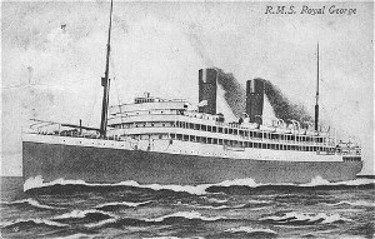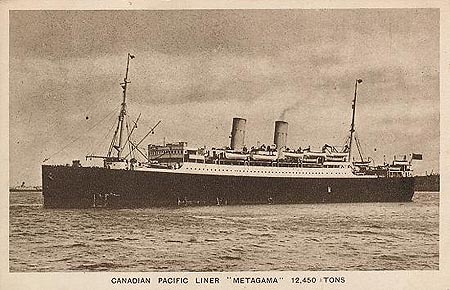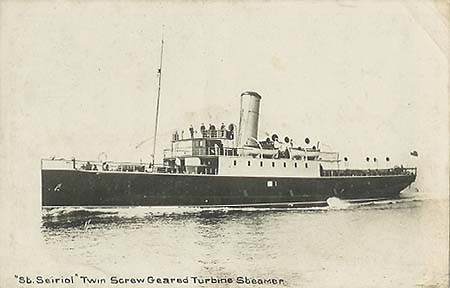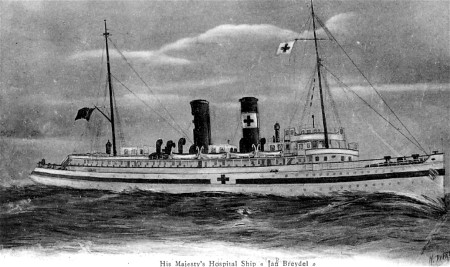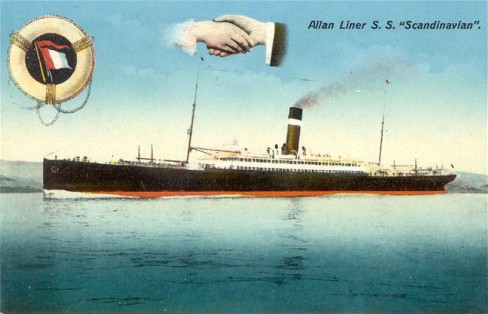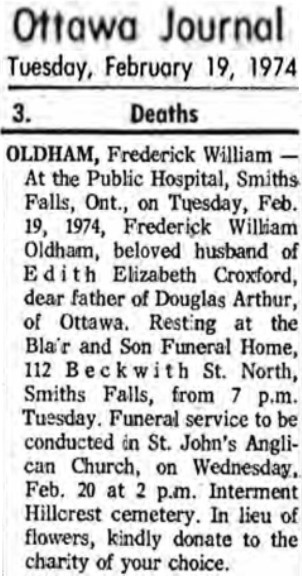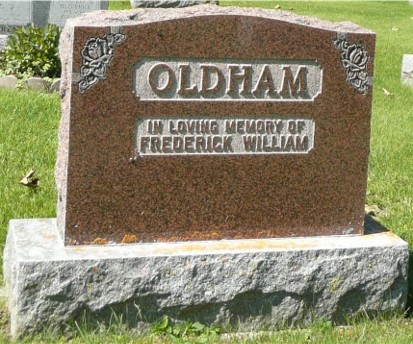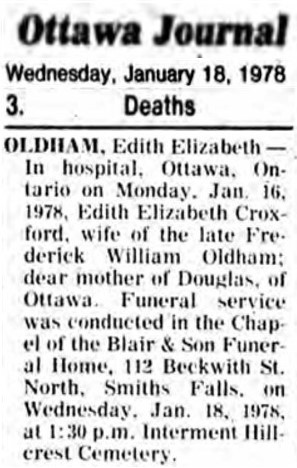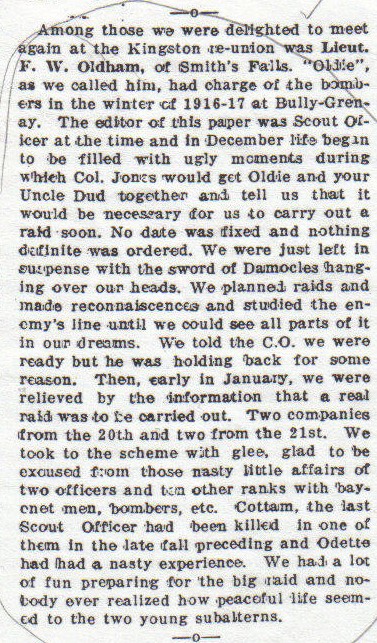|
||||||||||||||||||||||||||||||||||||||||||||||||||||||||||||||||||||||
|
The following speech was given by Frederick Oldham on September 16, 1967 during ceremonies at the Smith's Falls Cenotaph during the 21st Battalion reunion "Comrades
and friends: ln the many centres of population throughout this vast
country of ours, you will see many such monuments as this, on which are
chiseled the words "Lest We Forget". We — the survivors of
our great Battalion — have not forgotten. We have
kept the faith. For forty nine years we have gathered in Reunion to
honor the memory of those of our comrades who gave their lives in our
nation’s cause and to renew our comradeship with those who
survive. We come also to pay tribute to the tens of thousands of young
Canadians who suffered and died in later wars than ours for Canada and
the Commonwealth. Today we remember too those of our comrades of our
old Battalion who have passed to the Great Beyond since our last
Reunion. We miss their presence here with us today, their friendly
handshake, their ready smile. Our sympathy goes out to their bereaved
families — their loss is our loss too; by our constant
association with them during war and peace, they had become a part of
us and beloved by us. Surrounding
this Memorial at which we are gathered you see a small multitude of The following speech was given by Frederick Oldham on November 11, 1971, to his church congregation in Smiths Falls Ontario. The transcript was found in the PWOR Archives and I thought it appropriate to reproduce it here for all to read.
|
||||||||||||||||||||||||||||||||||||||||||||||||||||||||||||||||||||||
|
Twenty-six years ago today, I spoke to the congregation of this church.
It was on the 11th of November, 1945, Armistice
Day.
I said at that time that people in all walks of life, in every city,
town, and village, throughout this great land, would be gathering at
the Cenotaphs to honor the memory of the thousands of our gallant dead
who sacrificed their lives in the First and Second Great Wars. On this
day, twenty-six years' ago, veterans of both wars marched shoulder to
shoulder, some mourning the loss of a father or brother others mourning
the loss of a son, bringing to mind the sad day the tragic news reached
them, to the effect that one or the other had been killed in action.
On Thursday last the same scenes were re-enacted, keeping fresh in our
minds the terrible tragedy of war.
The 11th of November is no longer named
Armistice Day, but has been re-named Remembrance Day. 1 would hope that
many of you who know not the horror, misery and grief of war, would
think and learn of those wars, so that you may be better able to thank
God with gratitude in your hearts for this wonderful land saved for us
from the tyrants of that day by the sacrifice of thousands of the
flower of Canada's manhood, who now lie buried far from home in foreign
fields, and thank God for the mothers and fathers who gave to this
country stalwart sons of such courage and fortitude.
I would like to take you back to November 3rd
1914, fifty-seven years ago, when many of you were yet unborn.
The call came, for one thousand men from the surrounding district to
form the 21st Battalion. Out of fourteen hundred who turned up at
Kingston, our mobilization center, the desired number were chosen.
From then on, our lives were changed completely. No longer were we
masters of our own destiny. It was hard at first to be ordered to do
this and that, but realizing the seriousness of the situation, we
accepted without complaint very soon.
All through the bitter winter of 1914, we paraded and drilled in
below-zero weather and marched miles with full kit until we were almost
ready to drop, and often wondered if this routine would ever stop.
At ten o'clock one evening, when we were preparing for sleep, the bugle
sounded FALL IN. We rushed out on Parade and were told to gather up all
our belongings, and fall in again in full dress. When all were
assembled, and all present, we marched off, thinking it was another
long distance route march, but in-stead, we ended up at the station.
Somehow word had leaked out that we were finally on our way, for when
we arrived, the platform was crowded with women, who with tears in
their eyes, hugged and kissed us in a fond farewell. It mattered not to
them that we were not their sons but that we were some mother's son,
and many of us would never return.
The same thing happened when we arrived at Brockville. It was an
emotion filled night never to be forgotten. We left Brockville half an
hour late, and arrived in Montreal in the early hours of the morning.
There, we Marched directly onto the boat. As soon as all were on board,
the gang planks were lifted, the tugs hooked on, and we were soon
slowly moving from the wharf. The band played GOD SAVE THE KING as we
moved off.
As soon as the band stopped playing, a mighty roar rang up from the
troops, but quickly, silence fell over the ship as the sound of AULD
LANG SYNE came to our ears, and many a brave man shed a silent tear
unashamedly, as I think we realized for the first time that many of us
would never again return to the land we loved, and, unfortunately, 843
of those men never did return, and now lie buried in France and
Flanders, not ever to be forgotten by their relatives, and, Comrades
with whom they fought.
By the time we reached the open sea, our emotions were somewhat
quieted, when early the following morning we were shocked by the news
that came over the air-waves, that the previous night the giant ship
Lusitania had been torpedoed, and sunk with the loss of one thousand
eighteen lives.
We realized then, that we were dealing with a ruthless and merciless
enemy.
But what about us? Here were we in a precarious position, following the
same course as the Lusitania, with one thousand troops and sixty of a
crew, and 200 nurses on board with no escort and not a gun to protect
ourselves. Fortunately for us, the good Lord was on our side, for our
voyage was uneventful and we arrived safe and sound at Southampton
under the protection, for the last 100 miles, of a British
warship. What a heart-warming sight!
After four months of intensive training in England, (casualties were
getting very heavy, France was hard pushed) we were declared ready for
action. So we left camp late one night in the pouring rain, boarded a
ferry boat at Folkstone, and arrived at Boulogne in France early next
morning with the rain still pouring.
We lay on our rubber sheets in the mud until our cooks got organized
and breakfast was served. Soon after breakfast we started out on a
24-hour forced march, with 10-minute rest periods each hour, until
eventually, foot-sore and weary, we arrived at a place named Dranoutre,
two miles behind the firing line at Messines Ridge.
Two days rest, and there into the line to relieve, I think, the Essex
or Sussex Regiment, who were very happy to see us. They had been in the
line for fourteen months and expected to have quite a long rest but
instead, they were forced to march a long distance and immediately
thrown into the Battle of Loos, where many or most of then, died within
a very short time of us relieving them.
We were only on Messines Ridge for a short time, when we were moved to
a low-lying area of trenches at a place called Dickebusch, where the
trenches were battered down by enemy fire. Rat and vermin infested, mud
almost knee-deep, soaked to the skin day after day life was almost
unbearable. When it wasn't raining it was freezing, which added to our
misery.
It was here that I lost one of my closest friends. One bitter cold
frosty night, we were out on listening post in the middle of No Man's
Land, about 35 yards from the enemy line, when he turned to me and
whispered “Oldie, look up there. The sky was clear and full
of stars. He said “They tell us, that up there beyond those
stars is Heaven, but no one ever told us where the gate is we had to go
through, in order to get there. I wonder
A few days later, he was killed, and I'm sure he found out?
We buried him at Ridgewood, a short distance behind the lines - no
beating of the drums, no beautiful polished oak casket with flashy
furnishings, no heaped bank of flowers, just a staple ceremony. I am
sure your hearts would have bled, had you seen, how gently his comrades
lifted his broken body, aid wrapped it in a blanket, and deposited it
in the grave, with just a few words, INTO THY HAND, OUR HEAVENLY
FATHER, WE COMMIT THIS OUR COMRADE. REST IN PEACE.
Simple, yes. But yet how majestic in its simplicity!
No doubt, many of you have seen on television, during the last few days
many pictures of graveyards in France and Flanders, showing row on row
of white crosses representing thousands and thousands, who sacrificed
their lives for us in the two World Wars. Yet not all those graves
contained the remains of those whose names were inscribed thereon, for
hundreds could never be found, and their bodies lie buried, God only
knows where in some stinking shell -hole, maybe 20 feet deep. But thank
God, their names are registered for all to see, for all time to come.
The crosses may rot, and their names become obliterated, but time
cannot erase their deeds of valor. Those of us who are left, remember
them.
For fifty-three years, we of the 21st Battalion who are left held a
reunion, and as each year passes, our ranks grow thinner, and our ties
grow stronger. We speak of those who have gone before, especially,
those who have passed to the Great Beyond during the last year, and
wonder, amongst ourselves, who will be the next, for we are no longer
young and time is passing all too quickly.
We do not fear Death, but speak of it as something that passed us by in
the days of our youth, when all around us was Death and Destruction,
but by God's grace, we survived. But rather, we think of the words of
our beloved Padre, who after reading the names of those who passed away
during the last years, comforts the bereaved families by telling them
not to grieve, for He who once said, IN MY FATHER'S HOUSE ARE MANY
MANSIONS, BEHOLD, I GO TO PREPARE A PLACE FOR YOU, WILL BE THERE TO
RECEIVE TOM WITH WELCOMING WORDS - WELL DONE, THOU GOOD AND FAITHFUL
SERVANT.
Today, I ask you to think, and remember those thousands of our comrades
who lie buried far from home in North Africa, Italy, Korea, Hong Kong
France, Belgium, and beneath the sea who, by their sacrifice have made
it possible for us to worship here today. To think, and remember all
the bereaved families, and whilst thinking, and remembering them,
remember also the bereaved families of our so-called enemies, whose
sons and husbands, unlike us, were forced to fight.
Remember also, all those who are still in hospitals, and have been, all
these years, as a result of War. Especially, do I ask you to remember
all those who are mentally deranged as a result of shell shock, and who
in all probability will remain so for the remainder of their lives.
What can we give for that great sacrifice? What can we do for those who
“paid the price” paid with the good clean blood of
their youth?
Have we yet dared to face the truth? We who remember can kneel and pray
in the silence of this solemn day - pray for the wisdom God alone can
give - pray for the right to live in Peace.
The slogan for Poppy Day was THINK AND REMEMBER. There are many things
for us to remember, and to thank God for. The courageous effort of all
small boat owners, and the British Navy, who in the face of the whole
strength of the enemy air force, rescued 336 thousand British and
French troops, who were trapped on the beaches of Dunkirk after the
collapse of France.
Thank God, for the courage and tenacity of the combined forces, who in
the face of terrific losses, rushed forward on the beaches of Normandy,
and, eventually, liberated France, for the success of the North African
and Italian campaign, and especially, for the handful of airmen, who
although exhausted, fought continuously, day and night, and finally
saved Britain from destruction.
Also, I would ask you to pray that God, in His wisdom, will endow the
leaders of the nations of the world with understanding and tolerance,
so that any differences that may arise, will be settled, with the
stroke of a pen, rather than the stroke of the sword, and pray that our
forces of land and sea and air will never again be called upon to fight
as their forefathers have done and that Peace will come to the world
once more. And now, to GOD THE FATHER,-GOD THE SON, AND GOD THE HOLY GHOST, be ascribed, ALL MIGHT, MAJESTY, DOMINION AND POWER, NOW AND FOREVER. AMEN
|
||||||||||||||||||||||||||||||||||||||||||||||||||||||||||||||||||||||
|
Below is from the August 1934 issue of the
Communiqué. This is discussing the January 17,
1917 Calonne Trench Raid involving over 800 men. |
||||||||||||||||||||||||||||||||||||||||||||||||||||||||||||||||||||||
